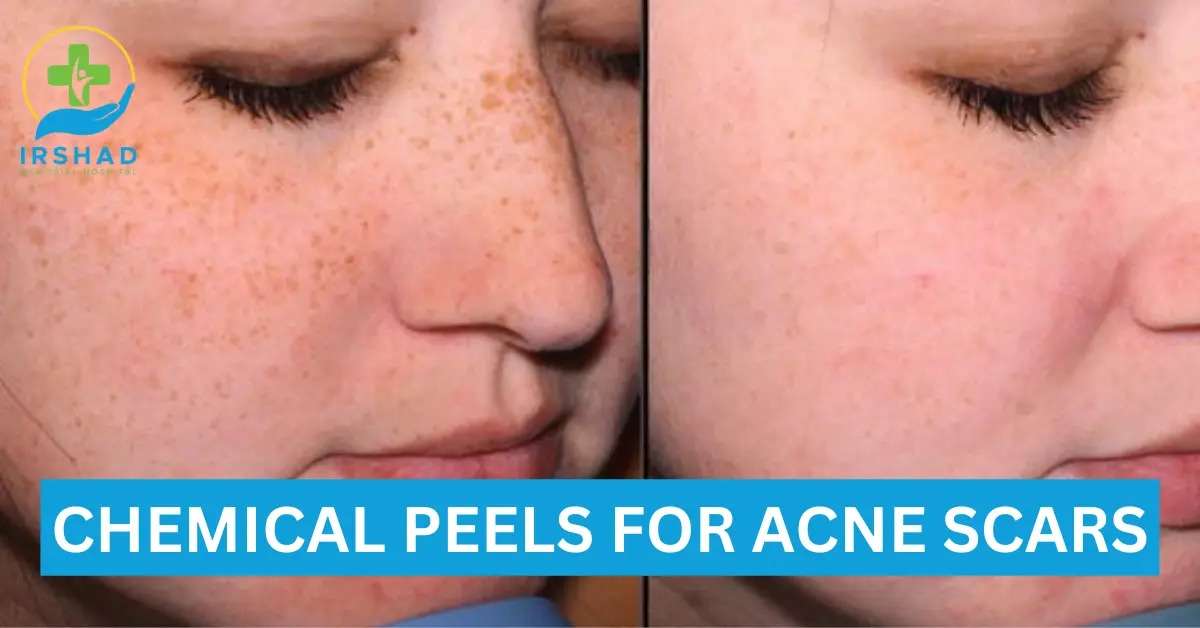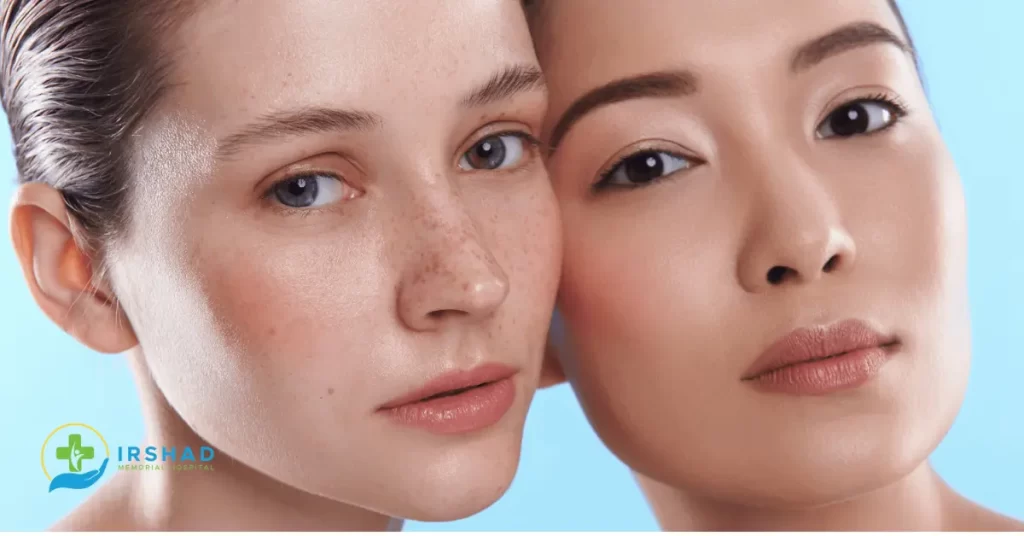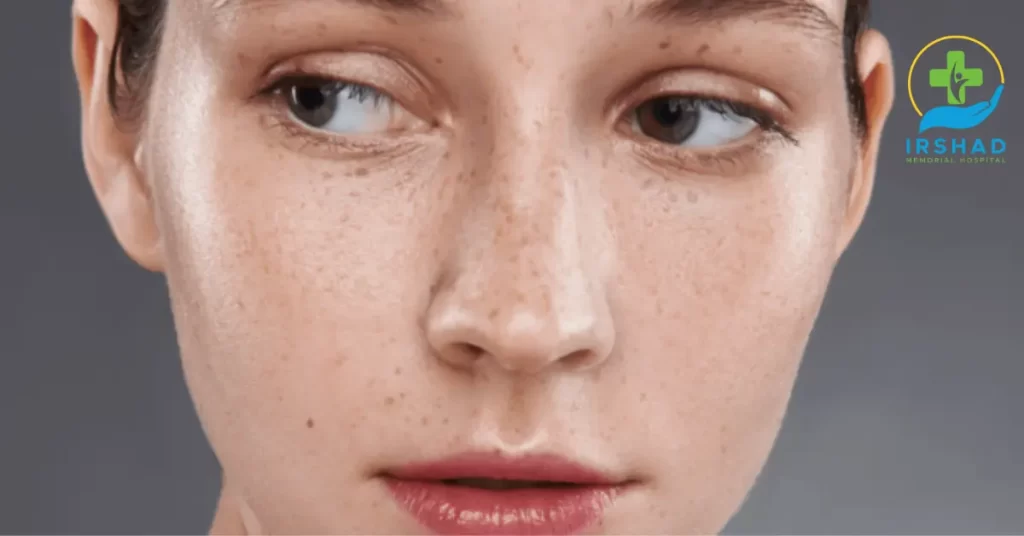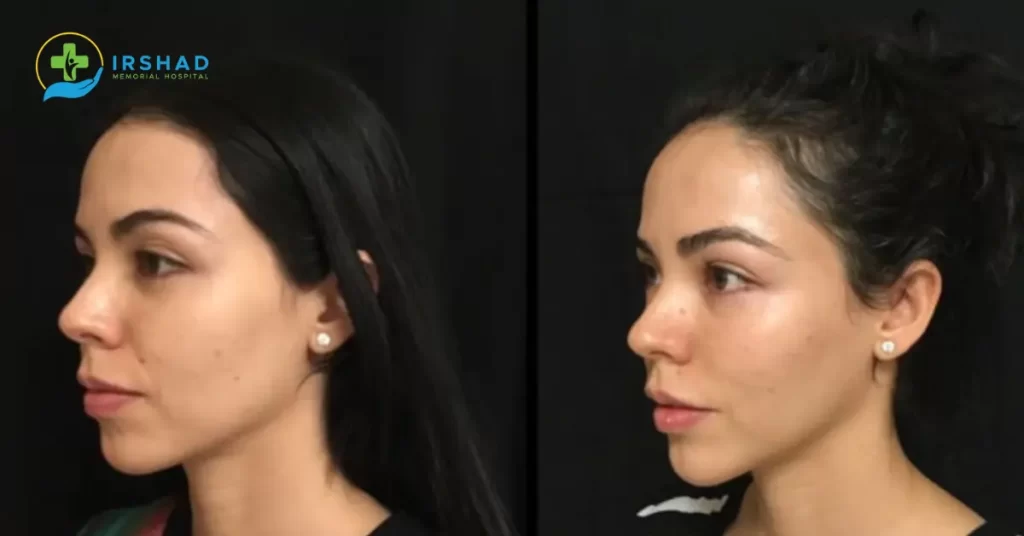
Chemical peels are a promising solution for addressing acne scars, offering a non-invasive approach to improve skin texture and appearance. These peels involve the application of a chemical solution to the skin, causing exfoliation and promoting the growth of new, healthier skin. For individuals with acne scars, chemical peels can be particularly effective in reducing the visibility of scars by encouraging collagen production and minimizing hyperpigmentation.
The depth of the peel varies, allowing customization to the severity of the scars. While results may vary, chemical peels can significantly contribute to smoother, rejuvenated skin, making them a popular choice for those seeking a non-surgical option for acne scar improvement. Consulting with a dermatologist can help determine the most suitable type of chemical peel for individual skin concerns and desired outcomes.
What is Acne Vulgaris?
Acne vulgaris, commonly known as acne, is a prevalent skin condition characterized by the formation of pimples, blackheads, whiteheads, and, in more severe cases, cysts or nodules. It typically occurs when hair follicles become clogged with oil, dead skin cells, and bacteria.
The face, chest, back, and shoulders are common areas for acne breakouts due to a higher concentration of oil glands. Hormonal changes, particularly during puberty, can trigger excess oil production, exacerbating acne. Factors like genetics, certain medications, and diet may also contribute. While not usually harmful, acne can impact one’s appearance and self-esteem.
Treatment options range from over-the-counter topical creams to prescription medications, aiming to unclog pores, reduce inflammation, and control bacterial growth. Maintaining a consistent skincare routine and consulting with a dermatologist can help manage and improve acne vulgaris.
What causes acne scars?
Acne scars result from the body’s natural healing process after severe or inflamed acne lesions. When the skin’s deeper layers are damaged, the healing response can lead to the formation of scars. Inflammatory acne, such as cysts or nodules, is more likely to cause scarring.
The two main types of acne scars are atrophic (depressed) and hypertrophic (raised) scars. Atrophic scars occur when there is a loss of tissue, and hypertrophic scars develop when there is an excess of tissue during the healing process. Picking, squeezing, or improperly treating acne can increase the risk of scarring.
Individuals with a genetic predisposition to scarring may also be more prone. Effective acne management and avoiding manipulation of lesions can help minimize the risk of developing lasting acne scars.
What is a Chemical Peel?

A chemical peel is a cosmetic procedure used to improve the texture and appearance of the skin on the face, neck, or hands. During a chemical peel, a chemical solution is applied to the skin, causing it to exfoliate and eventually peel off. This process removes dead skin cells, promoting the growth of new, smoother skin.
Chemical peels are classified into three types based on their depth: superficial, medium, and deep. Superficial peels are mild and target the outer layer of the skin, while medium and deep peels penetrate deeper layers to address more significant skin issues. These peels can help reduce the appearance of wrinkles, sun damage, acne scars, and uneven skin tone. It’s essential to consult with a dermatologist or skincare professional to determine the most suitable type of chemical peel for individual skin concerns.
What different types of chemical peels do dermatologists perform?
Dermatologists perform various types of chemical peels to address specific skin concerns:
- Superficial Peels:
- Mild peels targeting the outermost skin layer (epidermis).
- Uses mild acids like alpha hydroxy acids (AHAs) or beta hydroxy acids (BHAs).
- Improves skin texture, tone, and mild discoloration.
- Medium Peels:
- Penetrates the outer and middle skin layers.
- Utilizes stronger acids like glycolic or trichloroacetic acid (TCA).
- Addresses more pronounced issues such as fine lines, wrinkles, and age spots.
- Deep Peels:
- Penetrates deeper into the middle skin layer (dermis).
- Typically involves phenol, a potent acid.
- Targets severe wrinkles, deep scars, and sun damage.
The choice of peel depends on the individual’s skin concerns and the desired outcome. Dermatologists assess the skin condition and recommend the most appropriate type of chemical peel for optimal results and safety.
Where can I get a chemical peel for my face?
For a professional chemical peel for your face, Irshad Memorial Hospital in Bahria Town Phase 7, Rawalpindi, is an excellent choice. The hospital offers a dedicated dermatology department providing top-notch skincare treatments.
The experienced dermatologists at Irshad Memorial Hospital can assess your skin concerns and recommend the most suitable type of chemical peel, whether it’s a superficial, medium, or deep peel.
Their expertise ensures a safe and effective procedure to address issues like fine lines, wrinkles, acne scars, and uneven skin tone. To schedule a consultation or learn more about their dermatology services, you can visit their website at irshad.pk. Irshad Memorial Hospital is committed to providing quality care for your skin health needs.
Will a chemical peel clear acne?

Yes, a chemical peel can help clear acne and improve the overall condition of the skin. Chemical peels work by removing the outer layer of damaged skin, unclogging pores, and promoting skin renewal. Superficial and medium-depth peels are commonly used to address acne concerns.
They exfoliate the skin, reduce inflammation, and can diminish the appearance of acne scars and hyperpigmentation. Chemical peels can also regulate oil production, preventing future breakouts.
However, the effectiveness of a chemical peel for acne depends on factors like the type and severity of acne, as well as individual skin characteristics. Consult with a dermatologist to determine the most suitable type of chemical peel for your specific acne concerns and skin type.
What are the side effects of a chemical peel?
Chemical peels may have side effects that vary based on the peel’s depth. Common side effects include redness, peeling, and temporary sensitivity. Superficial peels may cause mild discomfort, akin to sunburn, which usually resolves within a few days.
Medium and deep peels can lead to more pronounced side effects like swelling, blistering, and changes in skin color. Post-peel care, including sun protection, is crucial to minimize risks. In rare cases, chemical peels can result in scarring or infection.
Individuals with darker skin tones may be more prone to pigmentation changes. It’s essential to discuss potential side effects with a dermatologist before undergoing a chemical peel and follow post-treatment instructions carefully to ensure a safe and effective outcome.
How to treat acne after a chemical peel
After a chemical peel, it’s crucial to follow a gentle post-treatment skincare routine to aid the healing process and prevent further irritation. Use a mild, non-abrasive cleanser and apply a soothing moisturizer to keep the skin hydrated. Avoid picking or scratching the treated area, as this can lead to scarring.
Sun protection is paramount—use a broad-spectrum sunscreen to shield your skin from UV rays, as the skin becomes more susceptible to damage after a peel. Refrain from using harsh products, retinoids, or exfoliants until your dermatologist approves.
If acne persists or worsens, consult your dermatologist for personalized advice. They may recommend specific post-peel products or adjustments to your skincare routine to address acne concerns effectively.
Will acne come back after a chemical peel?

While a chemical peel can effectively treat acne and improve the skin’s condition, it does not guarantee permanent prevention of future breakouts. Acne can recur due to various factors such as hormonal changes, genetics, and lifestyle. However, a chemical peel may help control acne by unclogging pores, reducing inflammation, and promoting skin renewal.
To maintain results, it’s crucial to follow a consistent skincare routine, including proper cleansing, moisturizing, and sun protection. Dermatologists may recommend periodic maintenance peels or other treatments based on individual needs. Adopting a healthy lifestyle and addressing underlying causes of acne, such as stress and dietary factors, can contribute to long-term management. Consult with a dermatologist to develop a comprehensive plan tailored to your specific skin concerns and goals.
How does a chemical peel treat acne?
A chemical peel treats acne by exfoliating the skin, unclogging pores, and promoting skin renewal. The chemical solution applied during the peel, which may contain acids like alpha hydroxy acids (AHAs) or beta hydroxy acids (BHAs), works to remove the outer layer of damaged skin.
This process helps to eliminate dead skin cells, reduce excess oil, and improve overall skin texture. By penetrating different skin depths, chemical peels can also address acne-related concerns like inflammation, scars, and hyperpigmentation.
The exfoliation induced by the peel encourages the growth of new, healthier skin, diminishing the appearance of acne lesions and preventing future breakouts. It’s important to consult with a dermatologist to determine the most suitable type and depth of chemical peel based on individual skin needs and acne severity.

